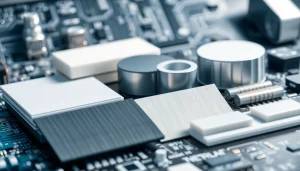Transform Your Business with Data-Driven AI Blockchain Analytics Insights

Understanding AI Blockchain Analytics
In an increasingly digital landscape, organizations are exploring advanced technologies to enhance their operational efficiencies and decision-making processes. One of the most transformative combinations in recent years has been the melding of artificial intelligence (AI) with blockchain technology. AI blockchain analytics harnesses these two innovative realms to unlock new levels of insights and data-driven strategies. By integrating large datasets from blockchain networks and employing AI algorithms to analyze these datasets, businesses can gain unique perspectives and make informed decisions that drive growth and innovation. For businesses evaluating this powerful synergy, understanding the fundamentals of AI blockchain analytics is crucial.
What Are AI Blockchain Analytics?
At its core, AI blockchain analytics refers to the application of artificial intelligence techniques to analyze and interpret data stored on blockchain networks. Blockchain technology is renowned for its ability to provide a decentralized ledger of transactions, ensuring transparency, security, and immutability. However, while blockchain captures vast amounts of data, it often remains untapped without the application of sophisticated analytics tools. AI serves as a bridging technology that can process and draw meaningful conclusions from this data, transforming it into actionable insights.
The Importance of Data in Blockchain
Data is often called the new oil, and in the context of blockchain, its value is immense. Blockchain generates extensive transactional data across various sectors including finance, healthcare, and supply chain management. This data can provide a rich context for understanding consumer behavior, transaction patterns, and even detecting fraudulent activities. Leveraging AI to analyze this data can help organizations discern trends, forecast outcomes, and better understand their operations, empowering them to make more strategic decisions.
How AI Enhances Blockchain Insights
AI enhances blockchain insights through predictive analytics, anomaly detection, and pattern recognition, among other methodologies. For instance, machine learning algorithms can be trained on historical blockchain data to predict future transactions or identify unusual transaction patterns that may indicate fraud or security breaches. Additionally, natural language processing (NLP) can analyze unstructured data linked to blockchain transactions, such as customer reviews or market sentiment, further enriching the dataset for more nuanced insights.
Key Benefits of AI Blockchain Analytics
Improved Decision Making
AI blockchain analytics equips organizations with robust data-driven insights that facilitate better decision-making. By continuously analyzing blockchain data, businesses can identify trends and patterns that inform strategic planning. This proactive approach allows for responsive decision-making, ultimately aligning business practices with market needs and consumer expectations. For example, financial institutions can assess risk more effectively through predictive models that utilize historical blockchain data, thus refining their lending processes and ensuring compliance with regulations.
Enhanced Security Measures
Blockchain is often celebrated for its security features due to its decentralized nature. However, vulnerabilities still exist, particularly in how data is utilized and managed. AI helps bolster security measures by employing advanced algorithms to detect fraudulent activities in real time. Anomalies in transaction patterns can be flagged almost instantaneously, allowing security teams to respond more swiftly. For example, if a transaction amounts to an unusually large sum, AI systems can notify administrators, thereby preventing potential fraud before it escalates.
Real-Time Data Processing
One of the standout features of AI is its ability to process vast amounts of data in real-time—an essential capability in environments like blockchain, where transactions occur continuously. In finance, trading firms utilize AI blockchain analytics to execute trades at the most opportune moments based on real-time data insights. Having the ability to analyze and act upon data as it happens can significantly enhance operational efficiency and competitive advantage.
Implementing AI Blockchain Analytics
Tools and Technologies You Need
To effectively implement AI blockchain analytics, organizations must deploy a combination of technologies. Key tools include:
- Data Processing Frameworks: Apache Spark and Hadoop are popular for processing large datasets quickly.
- Machine Learning Platforms: TensorFlow, Keras, or PyTorch are essential for building and training AI models on blockchain data.
- Blockchain Platforms: Ethereum, Hyperledger, and Corda provide the underlying architecture to store and manage blockchain data.
- Visualization Tools: Tools like Tableau or Power BI can help in rendering insights visually for easier consumption by stakeholders.
Steps to Deployment
Implementing AI blockchain analytics can be a systematic process:
- Identify Objectives: Determine what insights you need from your blockchain data and how AI can help achieve those outcomes.
- Select Technologies: Choose the tools and technologies that align best with your objectives and data sources.
- Data Integration: Integrate the blockchain data into your chosen machine learning platforms, ensuring data quality and consistency.
- Develop AI Models: Build and train your AI models using the blockchain data. This may involve supervised, unsupervised, or reinforcement learning techniques.
- Test and Validate: Rigorously test the AI models against real-world scenarios to ensure their accuracy and reliability.
- Deployment: Deploy the models into production environments where they can process real-time data.
- Monitor and Optimize: Continuously monitor performance metrics and optimize models based on new data inputs and changing conditions.
Common Challenges and Solutions
Implementing AI blockchain analytics does come with its challenges, including:
- Data Quality: Poor quality or inconsistent data can undermine the effectiveness of AI models. Organizations should invest in thorough data cleansing and validation processes.
- Talent Shortage: There may be a lack of skilled personnel who understand both AI and blockchain. Investing in training and development or collaborating with experts can mitigate this issue.
- Integration Complexity: Integrating AI with existing blockchain infrastructures may be complex. A phased approach to implementation can lessen the disruption to business operations.
- Regulatory Compliance: Navigating regulations associated with both AI and blockchain can be daunting. Staying informed and seeking legal counsel can help organizations adapt to evolving compliance landscapes.
Case Studies: Success Stories
Real-World Applications of AI and Blockchain
Numerous organizations are leveraging AI blockchain analytics to achieve transformative results:
- Financial Services: Major banks utilize AI algorithms to assess transaction risks on blockchain for faster credit scoring and fraud detection.
- Supply Chain: Retailers use blockchain for tracking products and employ AI analytics to forecast demand based on consumer purchasing behaviors.
- Healthcare: Providers are using AI to analyze blockchain-stored patient records for personalized medicine, improving healthcare outcomes significantly.
Analyzing Consumer Trends with AI Blockchain Analytics
Businesses are gaining insights into consumer behavior using AI-driven analytics on blockchain data. This information breeds better personalization in marketing strategies. A prominent e-commerce company analyzed blockchain transaction data combined with AI to identify trending products and adapt inventory forecasts accordingly, leading to a significant reduction in overstock costs.
Lessons Learned from Industry Leaders
Leaders in various industries share critical insights that can guide organizations looking to integrate AI blockchain analytics:
- Iterate and Adapt: Continuous iteration of AI models is crucial. As new data comes in, existing models should be revisited and retrained.
- Focus on Collaboration: Cross-functional teams that bring together data scientists and blockchain specialists tend to drive successful implementations.
- Emphasize Ethical Responsibility: Organizations should evaluate the ethical implications of AI decisions made based on blockchain data.
The Future of AI Blockchain Analytics
Emerging Trends to Watch
As the digital landscape evolves, several key trends are emerging in the realm of AI blockchain analytics:
- Decentralized Finance (DeFi): AI is increasingly being applied within DeFi to enhance trading algorithms and asset management.
- Greater Regulatory Scrutiny: As AI and blockchain technologies proliferate, expect increased regulatory guidance addressing their use and applications.
- Interoperability Solutions: AI blockchain analytics is evolving to promote data sharing across different blockchain ecosystems, enhancing collaboration.
Long-Term Impact on Industries
The long-term impact of AI blockchain analytics on industries is profound. It promises to revolutionize how organizations operate, particularly in areas like compliance, financial services, and supply chain management. Organizations that adopt these technologies will likely gain a significant competitive edge by being able to make quicker, more informed decisions based on real-time insights.
Preparing for Change: Strategies and Predictions
Organizations looking to harness AI blockchain analytics should start preparing now by laying the groundwork for integration. This preparation can involve:
- Investing in Training: Ensure that employees have the necessary skills to navigate both AI and blockchain landscapes.
- Establishing Partnerships: Collaborate with tech providers or consultancies that specialize in AI and blockchain technologies.
- Staying Abreast of Innovations: Regularly review industry publications and attend conferences focused on AI and blockchain advancements to keep your approach relevant.







